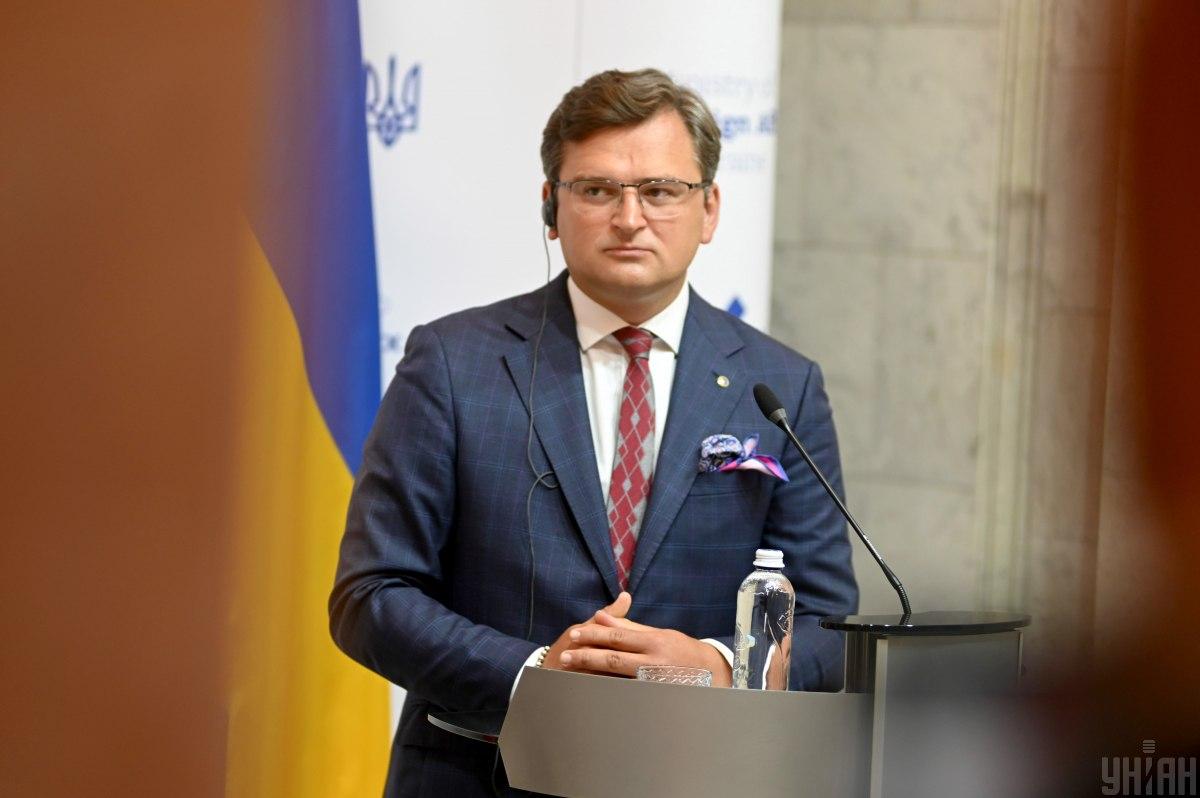
Ukrainian Foreign Minister Dmytro Kuleba has noted Russia's "fierce resistance" ahead of the Crimean Platform summit, which is to take place on the eve of the 30th anniversary of Ukraine's Independence with participation of international partners.
In an interview with RFE/RL's Ukrainian service, the minister said the summit had been postponed from May to August due "several factors."
"We just decided to win more time for quality preparations. This is a new initiative, so anything new needs careful elaboration. And COVID, too. You see, now the situation is that no one flies anywhere. You can see what's happening even in Europe with the restrictions being introduced. Therefore, it was postponed to August due to a combination of factors. I can tell you the more we work with countries and explain to them what this is and how it will work, the more support we find. We're seeing very positive dynamics," Kuleba said.
"I can also honestly tell you the more positive the reaction of partners, the more we record of Russia's efforts to compromise the Crimean Platform and to prevent participation of certain states in the summit. They are already stooping as low as sending direct signals to certain leaders of state and government that if they attend the Crimean Platform summit, they will face a response on their part. Fierce resistance from Russia is already being observed! The two goals are to discredit the very idea and hinder participation of leaders," he added.
The minister stopped short of revealing the names of foreign leaders who would be taking part in the summit.
"When the list is finalized, we will be happy to make the announcement. Right now it would be contrary to logic and diplomatic practice," Kuleba said.
Earlier, Ukraine's First Deputy Minister of Foreign Affairs Emine Dzhaparova (Dzheppar) said a declaration would be adopted following the Crimean Platform summit on the end of occupation of the peninsula.
The Russian Foreign Ministry said the Russian side is ready to take part in the Crimean Platform initiated by Ukraine if the problems of the peninsula are discussed at this site – from water supplies to transport infrastructure. Russian-controlled "head" of Crimea Sergey Aksenov said the creation of a new international platform would not help "return Crimea."
Crimean Platform to end Russian occupation of the peninsula
On September 23, Ukrainian President Volodymyr Zelensky, who participated in the general debate of the 75th session of the UN General Assembly, called on partners to join an international platform for the end of the Russian occupation of Crimea.
In December, Zelensky announced that the creation of the Crimean platform had already been backed by powers on both sides of the Atlantic.
Read alsoForeign Minister Kuleba: Ukraine takes tough stance on water for CrimeaThe platform will operate at several levels. The first, the highest one, is the political level, which will involve heads of state and government. The second level is that of top diplomats and defense chiefs, the third is the inter-parliamentary level, and the fourth will involve non-governmental experts. An expert network will be created to enhance the effectiveness of government action, as well as engaging additional intellectual resources in the platform's work.
The Crimean Platform Summit is scheduled for August 23, 2021.
Russian occupation of Crimea
Russia annexed Ukraine's Crimea in March 2014 after its troops had occupied the peninsula. An illegal referendum was held for Crimeans to decide on accession to Russia. De-facto Crimean authorities reported that allegedly 96.77% of the Crimean population had voted for joining Russia.
On March 18, 2014, the so-called agreement on the accession of Crimea and the city of Sevastopol to Russia was signed in the Kremlin.
Read alsoYanukovych faces charges for Kharkiv accords on Russia Navy in CrimeaThe West did not recognize the annexation in response to which sanctions against Russia were introduced.
Ukraine's parliament voted to designate February 20, 2014, as the official date when the temporary occupation of Crimea began.

